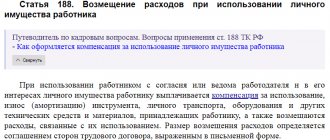Resolution of the Plenum of the Armed Forces of the Russian Federation dated December 22, 2015 No. 58
33. The most severe type of punishment in Articles 62, , , 68 of the Criminal Code of the Russian Federation should be understood as that type of punishment listed in the sanctions article, which is the most severe of the types of punishment applied in accordance with the current criminal law, taking into account the provisions of Article 44 of the Criminal Code of the Russian Federation (for example , for these purposes the arrest is not taken into account). It does not matter whether this type of punishment can be imposed on the perpetrator taking into account the provisions of the General Part of the Criminal Code of the Russian Federation (for example, part 1 of Article 56 of the Criminal Code of the Russian Federation) or the Special Part of the Criminal Code of the Russian Federation (for example, paragraph 2 of the notes to Article 134 of the Criminal Code of the Russian Federation).
(As amended by the Resolution of the Plenum of the Supreme Court of the Russian Federation dated December 18, 2021 No. 43.)
The rules of Articles 62, , and 68 of the Criminal Code of the Russian Federation do not apply to cases of imposing a less severe type of punishment specified in the sanction of an article of the Special Part of the Criminal Code of the Russian Federation for the crime committed and additional punishment.
34. When applying Articles 62 and 68 of the Criminal Code of the Russian Federation in the case of committing an unfinished crime, the part of the punishment specified in these norms is calculated from the term or amount of the punishment that can be assigned according to the rules of Article 66 of the Criminal Code of the Russian Federation.
If, as a result of the application of Articles 66 and (or) 62 of the Criminal Code of the Russian Federation or Articles 66 and 65 of the Criminal Code of the Russian Federation, the term or amount of punishment that may be assigned to the convicted person turns out to be less severe than the lower limit of the most severe type of punishment provided for by the sanction of the corresponding article of the Special Part of the Criminal Code RF, then the punishment is imposed below the lower limit without reference to Article 64 of the Criminal Code of the Russian Federation. In such cases, the upper limit of the imposed punishment should not exceed the term or amount of punishment that can be assigned taking into account the provisions of these articles (for example, for a crime provided for in part of Article 162 of the Criminal Code of the Russian Federation, taking into account the provisions of Part 2 of Article 62 of the Criminal Code of the Russian Federation, imprisonment is imposed for no more than 6 years, although the lowest sanction limit is 7 years).
In the same way, the issue of assigning punishment is resolved if the upper limit of the punishment that can be assigned to a convicted person as a result of the application of these norms coincides with the lower limit of the most severe type of punishment provided for by the sanction of the corresponding article of the Special Part of the Criminal Code of the Russian Federation.
Courts should keep in mind that in such cases, the upper limit of the punishment that can be assigned to a convicted person as a result of the application of these rules is the maximum amount for him, taking into account which it is necessary to apply other rules for imposing punishment established by law.
(Paragraph introduced by Resolution of the Plenum of the Supreme Court of the Russian Federation dated December 18, 2021 No. 43.)
35. The court is obliged to motivate the application of rules limiting the term or amount of punishment to a certain part of the most severe type of punishment in the descriptive and motivational part of the sentence. In the operative part of the sentence, a reference to articles , , and 68 of the Criminal Code of the Russian Federation is not required even if, as a result of applying the provisions of Articles 62, , 66 of the Criminal Code of the Russian Federation, the imposed punishment will be below the lower limit of the most severe type of punishment provided for by the sanction of the article of the Special Part of the Criminal Code of the Russian Federation . If Article 64 of the Criminal Code of the Russian Federation is applied, reference to it in the operative part of the sentence is mandatory.
Article 62 of the Criminal Code of the Russian Federation
36. Within the meaning of the law, the rules set out in Part 1 of Article 62 of the Criminal Code of the Russian Federation can be applied by the courts in the presence of at least one of the mitigating circumstances listed in paragraphs “and” and (or) “k” of Part 1 of Article 61 of the Criminal Code of the Russian Federation, if there are no aggravating circumstances.
If, along with the circumstances specified in Part 1 of Article 62 of the Criminal Code of the Russian Federation, the court establishes the presence of other mitigating circumstances, the punishment must be imposed taking into account all mitigating circumstances.
37. The rules of Part 3 of Article 62 of the Criminal Code of the Russian Federation on the non-application of the provisions of Part 1 of this article do not apply to persons who, by virtue of the law, are not sentenced to life imprisonment, including persons who have committed an unfinished crime. It should be borne in mind that Part 3 of Article 62 of the Criminal Code of the Russian Federation does not contain a ban on the application of punishment in the form of life imprisonment in the presence of the conditions provided for in Part 1 of this article.
38. The provisions of parts and Article 62 of the Criminal Code of the Russian Federation apply if the person has fulfilled the conditions of the pre-trial agreement on cooperation (Article 63.1 of the Criminal Code of the Russian Federation).
When imposing a punishment on a person with whom a pre-trial cooperation agreement has been concluded, in accordance with part or part of Article 62 of the Criminal Code of the Russian Federation, the provisions of Part 1 of this article on the term and amount of punishment are not subject to consideration.
The rules for imposing punishment established by part of Article 62 of the Criminal Code of the Russian Federation also apply in the presence of circumstances aggravating the punishment.
If exceptional circumstances are established, as well as if the defendant actively assists in solving a group crime, the court has the right to apply the provisions of Article 64 of the Criminal Code of the Russian Federation, including in the presence of aggravating circumstances.
According to the rules of Part 2 or Part 4 of Article 62 of the Criminal Code of the Russian Federation, punishment should also be imposed in cases where the court, for reasons not related to the defendant’s fulfillment of the obligations of the pre-trial cooperation agreement, considered the case in a general manner.
39. When establishing the circumstances provided for by both part and part of Article 62 of the Criminal Code of the Russian Federation, a set of rules for mitigation of punishment is applied: first, the provisions of Part 5 of Article 62 of the Criminal Code of the Russian Federation are applied, then - Part 1 of Article 62 of the Criminal Code of the Russian Federation. Thus, the maximum possible punishment in these cases should not exceed: two-thirds of two-thirds - when considering a criminal case in the manner prescribed by Chapter 40 of the Code of Criminal Procedure of the Russian Federation, and two-thirds of one-half - in the case specified in Article 226.9 of the Code of Criminal Procedure of the Russian Federation.
Article 64 of the Criminal Code of the Russian Federation
40. The court has the right to recognize as exceptional circumstances giving rise to the application of Article 64 of the Criminal Code of the Russian Federation both individual mitigating circumstances and their totality, indicating in the verdict the grounds for the decision. Article 64 of the Criminal Code of the Russian Federation can also be applied in the presence of circumstances aggravating the punishment.
If the main punishment is imposed on the basis of Article 64 of the Criminal Code of the Russian Federation below the lower limit provided for by the sanction of the article of the Special Part of the Criminal Code of the Russian Federation, the term or amount of the punishment cannot be lower than the lower limit established for this type of punishment in the General Part of the Criminal Code of the Russian Federation.
Within the meaning of Part 1 of Article 64 of the Criminal Code of the Russian Federation, the appointment of a milder type of main punishment than provided for in the article of the Special Part of the Criminal Code of the Russian Federation is not prevented by the presence of alternative types of punishment in the sanction article.
When assigning a more lenient type of main punishment according to the rules of Article 64 of the Criminal Code of the Russian Federation, one should take into account the restrictions established in the General Part of the Criminal Code of the Russian Federation for assigning one or another type of punishment.
41. When imposing a punishment using Article 64 of the Criminal Code of the Russian Federation, in the operative part of the sentence a reference must be made to the specified norm when assigning punishment for each specific crime. Indication of this norm when assigning final punishment for a set of crimes is not required.
Article 65 of the Criminal Code of the Russian Federation
42. Within the meaning of the law, taking into account the peculiarities of recognizing the defendant as deserving leniency, the presence of a jury verdict on leniency, as well as mitigating circumstances provided for in paragraphs “and” and (or) “k” of Part 1 of Article 61 of the Criminal Code of the Russian Federation, and the absence of aggravating circumstances punishment does not entail consistent application of the provisions of part 1 of the article and part 1 of article 65 of the Criminal Code of the Russian Federation. Part 1 of Article 65 of the Criminal Code of the Russian Federation is subject to application. At the same time, in such cases, the judge has the right to apply the rules for imposing punishment provided not only by Article 65 of the Criminal Code of the Russian Federation, but also (taking into account the circumstances specified in paragraphs “i” and “j” of Part 1 of Article 61 of the Criminal Code of the Russian Federation) Article 64 of the Criminal Code of the Russian Federation ( part 2 of article 349 of the Code of Criminal Procedure of the Russian Federation).
Within the meaning of Part 2 of Article 349 of the Code of Criminal Procedure of the Russian Federation, if there are grounds provided for in Article 64 of the Criminal Code of the Russian Federation, the judge has the right to assign a more lenient punishment to both a person who is recognized as deserving leniency and a person who is not recognized as deserving leniency.
Article 66 of the Criminal Code of the Russian Federation
43. When assigning punishment for an unfinished crime, the terms and amounts of punishment must be observed, which, in accordance with parts and Article 66 of the Criminal Code of the Russian Federation, are calculated from the maximum term or amount of the most severe type of punishment provided for a completed crime. At the same time, life imprisonment for preparation for a crime and attempted crime is not imposed (Part 4 of Article 66 of the Criminal Code of the Russian Federation).
Article 68 of the Criminal Code of the Russian Federation
44. When deciding whether there is a relapse of crimes, the courts should keep in mind that the basis for recognizing a recidivism of crimes is a conviction only for an intentional crime. In this case, the criminal records specified in Part 4 of Article 18 of the Criminal Code of the Russian Federation are not taken into account.
The presence of a conviction for a crime of minor gravity in a person who has committed a serious crime does not constitute a recidivism of crimes. However, the commission of an intentional crime of minor gravity by a person who has a conviction for a crime of medium gravity, a serious or especially serious crime constitutes a recidivism of crimes.
A criminal record expunged, including in the manner established by part of Article 74 of the Criminal Code of the Russian Federation, or expunged before the commission of a new crime does not constitute a recidivism. However, the presence of a criminal record (with the exception of convictions listed in Part 4 of Article 18 of the Criminal Code of the Russian Federation), removed or expunged after the commission of a new crime in the manner established by Article 86 of the Criminal Code of the Russian Federation, constitutes a recidivism of crimes, since the presence of a recidivism of crimes is established at the time of the commission of the crime.
To draw the attention of the courts to the fact that if a punishment is imposed according to the rules of Part 5 of Article 69 of the Criminal Code of the Russian Federation, a crime committed before the previous sentence was passed does not constitute a relapse of crimes. There is no relapse of crimes in cases where a new crime was committed after the previous sentence was passed, but before it entered into legal force.
45. Cancellation of a suspended sentence when a sentence is passed, for which the punishment is imposed using Article 70 of the Criminal Code of the Russian Federation, does not constitute a relapse of crimes.
Cancellation of a suspended sentence constitutes a relapse of crimes only in the case when the decision to cancel the suspended sentence and to send the convicted person to serve his sentence in prison was made before he committed a new crime. In this case, it does not matter on what grounds the conditional sentence was previously revoked - in accordance with part or part of Article 74 of the Criminal Code of the Russian Federation when imposing punishment for a cumulative sentence or in cases provided for in Part 3 of this article, on the basis of a court decision. It does not matter whether the convicted person actually began serving his or her imprisonment.
If, according to the first verdict, a person was sentenced to suspended imprisonment for an intentional crime (except for a crime of minor gravity), when a second verdict was passed for a new crime, the court, on the basis of Part 5 of Article 74 of the Criminal Code of the Russian Federation, canceled the suspended sentence and imposed a punishment in accordance with Article 70 of the Criminal Code of the Russian Federation, then when deciding the third sentence for a newly committed crime, the first and second convictions are taken into account when determining the presence of recidivism.
If a person commits an intentional grave or especially grave crime during the remaining unserved part of the sentence, by virtue of paragraph “c” of Part 7 of Article 79 of the Criminal Code of the Russian Federation, a special decision to revoke parole is not required, and the defendant is sentenced according to the rules provided for in Article 70 of the Criminal Code RF. In other cases, the court is obliged to justify the need to cancel (or maintain) parole.
46. In the descriptive and motivational part of the sentence, it is necessary to indicate the type of recidivism of crimes. When recognizing the recidivism of crimes, it does not matter whether the crimes were completed or unfinished, as well as what the nature of the person’s participation in these crimes is (perpetrator, organizer, instigator or accomplice). In addition, for the recognition of recidivism, the presence or absence of an indication of recidivism in the indictment, indictment or indictment does not matter.
Within the meaning of Article 18 of the Criminal Code of the Russian Federation, the commission of a particularly serious crime by a person who has a conviction for a serious crime for which he was serving imprisonment constitutes a dangerous recidivism of crimes (Part 2 of Article 18 of the Criminal Code of the Russian Federation).
When a recidivism of crimes is recognized as dangerous or especially dangerous (parts 2 and 3 of Article 18 of the Criminal Code of the Russian Federation), a sentence to actual imprisonment includes a suspended sentence to imprisonment if the suspended sentence was revoked and the person was sent to serve the sentence in a prison before committing new crime.
47. According to Part 2 of Article 68 of the Criminal Code of the Russian Federation, in the event of a relapse of crimes, a person who has committed a crime for which alternative types of punishment are provided is assigned only the most severe type of punishment provided for by the corresponding article of the Special Part of the Criminal Code of the Russian Federation. The imposition of a less severe type of punishment, both provided for and not provided for by the sanction of the relevant article of the Special Part of the Criminal Code of the Russian Federation, is allowed only in the presence of exceptional circumstances specified in Article 64 of the Criminal Code of the Russian Federation (Part 3 of Article 68 of the Criminal Code of the Russian Federation).
48. Based on the provisions of parts and Article 68 of the Criminal Code of the Russian Federation, punishment for recidivism of crimes cannot be lower than the lower limit of the sanction of the corresponding article, even if one third of the maximum term of the most severe type of punishment provided for a completed crime is less than the minimum amount of the most severe type punishment provided for a specific crime (for example, for a crime provided for in part of Article 161 of the Criminal Code of the Russian Federation, taking into account the provisions of Part 2 of Article 68 of the Criminal Code of the Russian Federation, less than 6 years of imprisonment cannot be imposed - the lowest limit of this type of punishment for this crime, although one third the maximum penalty for this crime is 4 years).
(As amended by the Resolution of the Plenum of the Supreme Court of the Russian Federation dated December 18, 2021 No. 43.)
Courts should keep in mind that in case of any type of recidivism of crimes, the sentence for an unfinished crime may be lower than the lower limit of the sanction of the corresponding article of the Special Part of the Criminal Code of the Russian Federation. In this case, a reference to Article 64 of the Criminal Code of the Russian Federation is not required.
(Paragraph introduced by Resolution of the Plenum of the Supreme Court of the Russian Federation dated December 18, 2021 No. 43.)
In the event that one third exceeds the minimum amount of the most severe type of punishment provided for the crime committed, the court, in accordance with part of Article 68 of the Criminal Code of the Russian Federation, may impose a punishment for a period of less than one third, but not lower than the lower limit of the sanction of the corresponding article The special part of the Criminal Code of the Russian Federation, if it establishes mitigating circumstances provided for in Article 61 of the Criminal Code of the Russian Federation. In this case, circumstances recognized as such in accordance with part of Article 61 of the Criminal Code of the Russian Federation may also be taken into account as mitigating factors.
If the size of one third of the maximum term of the most severe type of punishment coincides with the lower limit of the sanction of the corresponding article and the court has established mitigating circumstances provided for in Article 61 of the Criminal Code of the Russian Federation, and the grounds for applying Article 64 of the Criminal Code of the Russian Federation have not been established, the court does not have the right to assign a sentence to the convicted person below the lower limit sanctions of the relevant article.
When imposing a punishment using Article 64 of the Criminal Code of the Russian Federation, in the operative part of the sentence one should refer not to Part 3 of Article 68 of the Criminal Code of the Russian Federation, but to Article 64 of the Criminal Code of the Russian Federation.
49. In the case of consideration of a criminal case in a special manner provided for by Chapter 40 or 40.1 of the Code of Criminal Procedure of the Russian Federation, for any type of recidivism, one third provided for by parts and Article 68 of the Criminal Procedure Code of the Russian Federation is calculated:
(As amended by the Resolution of the Plenum of the Supreme Court of the Russian Federation dated December 18, 2021 No. 43.)
for a completed crime - from the maximum term of the most severe type of punishment provided for the crime committed by the sanction of the relevant article;
for an unfinished crime - from the maximum term of the most severe type of punishment provided for the committed crime, which can be assigned taking into account the provisions of Article 66 of the Criminal Code of the Russian Federation.
Parole and extremism: The Plenum of the Supreme Court rewrote its “criminal” resolutions
The first block of amendments concerns Resolution No. 8 of April 21, 2009 “On the judicial practice of parole from serving a sentence, replacing the unserved part of the sentence with a more lenient type of punishment.” The Plenum of the Supreme Court has amended this document for the fourth time.
1
Request for replacement
If the convicted person or his lawyer applies to the court with a petition to commute the remaining part of the sentence before the deadline prescribed in Part 3 of Art. 79 of the Criminal Code, the petition must be returned to them. This article specifies how long a prisoner must serve before filing a petition. The terms vary depending on the severity of the crime.
The same rule applies to cases where the punishment has already been commuted once, but the prisoner has violated, for example, the rules of parole. If such an appeal was received by the court less than a year later (Part 12 of Article 175 of the Penal Code), the court will return it.
2
Chance of freedom due to illness
One of the points of the updated resolution can help seriously ill prisoners be released.
The Supreme Court emphasizes: negative characterization of the colony staff, lack of incentives during imprisonment, lack of permanent residence and “social connections” should not interfere with the release of a prisoner due to illness. As does the fact that the prisoner served only a small part of his sentence.
3
Deferment of punishment
When deciding on a deferment of punishment, to which, for example, parents of minor children are entitled, the court must take into account the characteristics and other data about the personality of the defendant, his living conditions and the situation of his family. You should also find out whether he has housing and the necessary conditions for living with the child.
“In this case, the court must have a document confirming the presence of a child or a medical report on the woman’s pregnancy, as well as other documents necessary to resolve the issue on the merits,” the Plenum emphasizes.
Also, for the fourth time, the Plenum amends the 2011 resolution “On the judicial practice of applying legislation regulating the specifics of criminal liability and punishment of minors.” Most of the changes are technical in nature, but there are some noteworthy new formulations.
1
In pre-trial detention center for a crime of moderate gravity
The paragraph of the resolution on the possibility of placing a minor in custody, that is, in a pre-trial detention center, was supplemented with a new paragraph. According to the updated position of the Supreme Court, it is allowed to arrest such a suspect for committing a crime of medium gravity. The previous version of the resolution did not contain such instructions.
This is permissible in cases where such a preventive measure is “the only one possible in specific conditions, taking into account the circumstances of the incriminated act.” In this case, information about the identity of the alleged criminal must also be taken into account.
The plenum makes an amendment: a suspect who has not yet reached the age of 16 can be sent to a pre-trial detention center only if he has committed a crime of moderate gravity not for the first time.
2
Parents are not allowed to go to the cassation office
Sometimes the convicted person reaches his 18th birthday while appealing the sentence. The previous version of the Plenum resolution provided that in this case legal representatives could take part in meetings of both the appellate and cassation instances. Now the mention of cassation has been removed from the document.
3
Attempt at reconciliation
In the clause on possible reconciliation of the parties, the Supreme Court gave new instructions to the courts. In cases of crimes of minor or moderate gravity committed by a minor for the first time, the court must find out from the victim whether the harm caused has been made up for and whether he wants to reconcile with the defendant. All participants in the process must also be explained the procedure for terminating the criminal case in connection with the reconciliation of the parties.
4
The courts must check the investigator
In some cases, the investigator or prosecutor may petition the court to dismiss the criminal case against the minor.
When considering a petition, the judge must make sure that the suspicion or accusation brought against the minor is justified and supported by evidence. And the case materials must contain “sufficient data” confirming compensation for damage or otherwise making amends for the harm caused by the crime.
5
Will pay for the child
The Supreme Court emphasizes: a court fine imposed on a minor can be paid by his parents or guardians, but this requires their consent.
6
Correction instead of punishment
The Plenum reminds the courts that punishment for minors in cases of minor and moderate gravity can be replaced by “compulsory educational measures.” The court may make such a decision both at the stage of preparation for the court hearing based on the results of the preliminary hearing, and after the main trial.
The Plenum makes the most changes to the resolution “On judicial practice in criminal cases involving extremist crimes.”
1
Priorities have changed
In the new version of the resolution, the Plenum drew attention to extremist publications on the Internet.
Previously, the document only referred to images, audio and video files containing “signs of incitement to hostility and hatred.” All these formats of materials remained in the new version of the explanations, but now there is an indication of “text”. And “enmity and hatred” gave way to “calls for extremist activities or actions aimed at violating the territorial integrity of the Russian Federation.”
This change appeared due to the fact that many points of the resolution are now applicable not only to crimes under Art. 282 of the Criminal Code, but also to Art. 280 and 280.1 of the Criminal Code. Therefore, such amendments were made to all paragraphs of the document where “enmity and hatred” are mentioned.
2
Window per year
The Plenum of the Supreme Court emphasizes: criminal prosecution for calls for violating the territorial integrity of the Russian Federation is possible only if this act turns out to be repeated: less than a year must pass after the person was brought to administrative responsibility (Article 20.30.2 of the Administrative Code).
3
Check before the "criminal"
The one-year period after administrative liability required for criminal prosecution must be checked. Courts should clarify whether the decision to prosecute under the Code of Administrative Offenses came into force at the time of the repeated violation, whether it was executed and whether it has not been revised.
If, for example, a year has already passed, the criminal case must be returned to the prosecutor. The courts must act similarly even when the accused has made a deal with the investigation and admitted his guilt.
4
Set of crimes
Inciting hatred or enmity, as well as humiliation of human dignity associated with torture, must be qualified under two elements of the Criminal Code - under Art. 282 and according to paragraph “h” of Part 2 of Art. 117.
5
No additional qualifications for a manager
The leader of an extremist community or organization who involved other people in the activities of the group should be held liable only under the article on the organization of such a community - under Part 1 of Art. 282.1 (or 282.2 CC).
Other persons who attracted other people will be convicted under the totality of Part 2 of Art. 282.1 (or 282.2 of the Criminal Code) and part 1.1 of these articles. That is, at the same time for participation and “recruitment”.
6
Alone
The Plenum emphasizes: if a religious or public organization has been declared extremist by a court, its individual participants can exercise their rights “to freedom of conscience and freedom of religion,” but only if they do not try to continue or resume the activities of the banned extremist organization.
Resolution of the Plenum of the Supreme Court dated October 28, 2021 No. 32 “On amendments to certain decisions of the Plenum of the Supreme Court of the Russian Federation in criminal cases.”
- Maxim Varaksin
- Supreme Court of the Russian Federation







